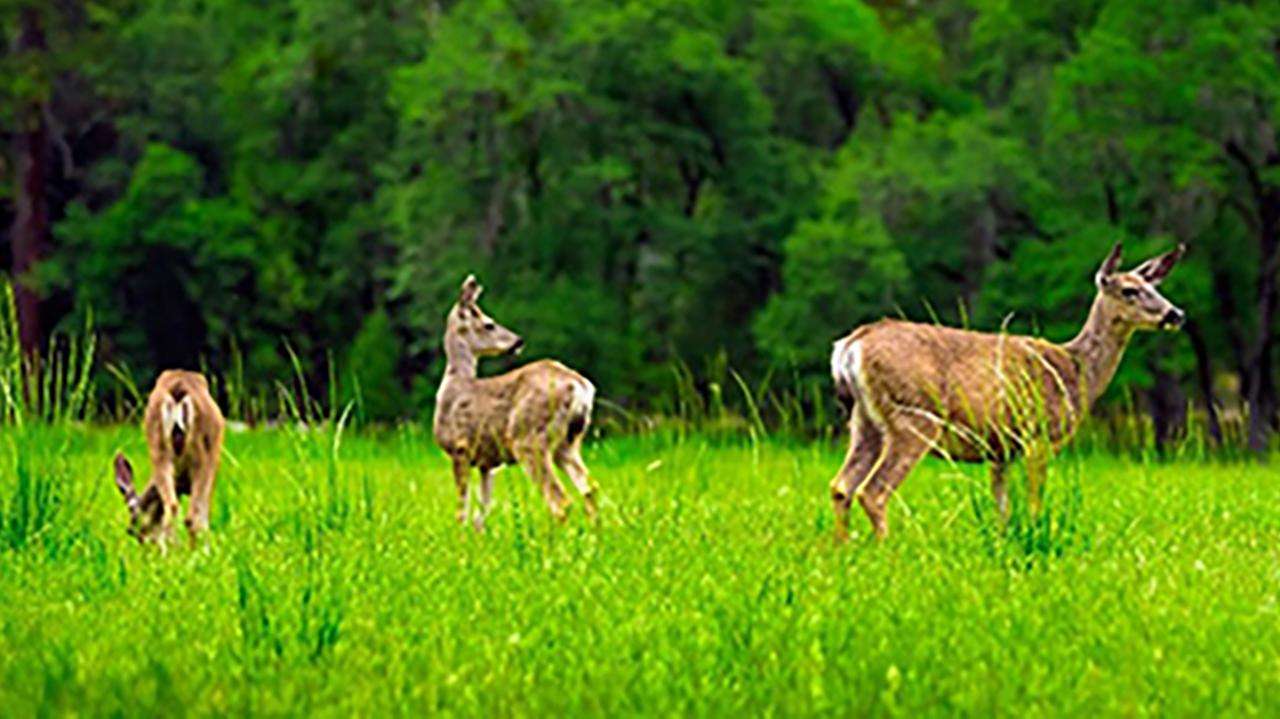APHIS Supports Projects to Control and Prevent Chronic Wasting Disease

Press Release
Announces Availability of Funding for Surveillance, Testing, Management and Response Activities
Contact:
APHISpress@usda.gov
WASHINGTON, April 9, 2024 – The U.S. Department of Agriculture’s Animal and Plant Health Inspection Service (APHIS) is announcing the availability of more than $12 million for states and Tribal governments, research institutions and universities to control and prevent chronic wasting disease (CWD) in wild and farmed cervids (e.g., deer, elk).
State departments of agriculture, state animal health agencies, state departments of wildlife or natural resources, research institutions and universities, and Federally recognized Native American Tribal governments and organizations are eligible to submit funding proposals to control and prevent CWD in farmed and wild cervids through the development and/or implementation of CWD surveillance, testing, management, and response activities including the indemnification of farmed cervids. Funds may also be provided to:
- Further research, development, and evaluation of techniques and strategies for controlling and preventing CWD.
- Support education and outreach activities to increase awareness about the disease and how it spreads.
- Further research likely to lead to new methods, tools, or improved strategies for the prevention or control of CWD.
APHIS may give priority to management proposals from states and Tribal governments that have, already detected CWD, border CWD-endemic areas, or have implemented monitoring and surveillance programs or propose to do so.
Three funding opportunities are available beginning today: One for farmed cervids and two for wild cervids, with one of those specifically for Tribal governments’ activities on Tribal lands.
CWD is an infectious, degenerative disease of cervids that causes brain cells to die, ultimately leading to the death of the affected animal. The incubation period can be lengthy and infected animals may look healthy until the end stages of the disease, making them difficult to distinguish from healthy animals. Animals infected with CWD can transmit the disease to other animals during the “silent” incubation period. The disease has spread widely and the limited number of tools, as well as their efficacy, impacts the ability to effectively control the disease.
An eligible applicant may submit multiple proposals for each funding opportunity, requesting up to the maximum amount for that funding opportunity in each proposal.
Specifically, these cooperative agreement opportunities will allow for state departments of agriculture, state animal health agencies, state departments of wildlife or natural resources, Federally recognized Native American Tribal governments and organizations, and research institutions and universities to further develop and implement CWD management and response activities in accordance with the following priorities:
- Improve CWD management of affected farmed herds and wild cervid populations;
- Improve CWD management of affected areas or premises;
- Conduct novel research on amplification assays and other new test methods;
- Conduct additional research on, or implement, whole genome predictive genetics; and,
- Develop and/or deliver educational outreach materials or programs.
Cooperative agreement funding in previous years has resulted in the development and implementation of predictive genetics to assist farmed cervid owners in breeding for less susceptible deer, removal of CWD-positive farmed cervid herds, increased CWD surveillance in wild cervid populations, hunter and public education, and carcass disposal options to reduce spread of CWD.
Funding opportunity announcements are posted on ezFedGrants and Grants.gov and can be found by searching the title, catalog of federal domestic assistance number, or funding opportunity number (see below). Applications are due on June 10, 2024.
#
USDA is an equal opportunity provider, employer, and lender.

